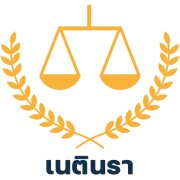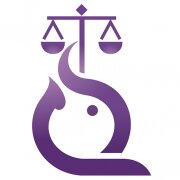Best Military Law Lawyers in Thailand
Share your needs with us, get contacted by law firms.
Free. Takes 2 min.
Or refine your search by selecting a city:
List of the best lawyers in Thailand
Legal guides written by Smart Legal Solutions:
- Main Legal Measures to Protect Foreign Investment in Thailand
- The importance of the geographical indications for the Thai economy
About Military Law in Thailand
Military Law in Thailand is a specialized legal field that governs the actions, duties, and disciplinary measures related to members of the Thai Armed Forces. It includes a framework of regulations that address conduct, administration, and justice within military operations. The system is designed to ensure discipline, effectiveness, and proper conduct among service members. In Thailand, military law operates alongside civilian legal systems, with military courts handling cases involving military personnel, focusing on offenses related to their duties and behavior.
Why You May Need a Lawyer
There are numerous situations where individuals may require legal assistance concerning Military Law in Thailand. Some common scenarios include:
- Facing charges for breaches of military discipline or conduct.
- Navigating the procedures of military courts and tribunals.
- Interpreting complex military statutes and regulations that affect service members.
- Handling matters related to enlistment, promotion, or discharge disputes.
- Dealing with issues concerning the rights of military personnel and veterans.
Legal representation can provide guidance and defense against charges, ensuring that the rights and responsibilities of service members are respected and upheld.
Local Laws Overview
In Thailand, the Military Judicial System is distinct from the civilian courts, having its own set of rules and procedures. Key aspects of local military laws include:
- The Military Court Act which outlines the jurisdiction and functioning of military courts.
- The Code of Military Justice, covering the offenses and disciplinary actions applicable to military personnel.
- Military regulations that address conduct, procedures, and operations pertinent to service members.
- Enforcement of military law during times of both peace and conflict, with adaptations in cases of martial law.
These laws ensure order within the armed forces and dictate the legal consequences of various actions.
Frequently Asked Questions
What is the main purpose of military law in Thailand?
The primary purpose of military law in Thailand is to maintain discipline and order among service members, ensuring effective and coordinated military operations.
Who is subject to military law in Thailand?
Members of the Thai Armed Forces, both active and some reserve personnel, are subject to military law. This can also extend to certain civilians in specific circumstances related to military operations.
What happens if a military member commits an offense?
If a military member commits an offense, they may face disciplinary action or trial in a military court, depending on the severity and nature of the offense.
How does a military court differ from a civilian court?
Military courts are specialized tribunals that focus on military offenses and conduct. They operate under different sets of rules and procedures compared to civilian courts and are staffed by military judges who understand military life and law.
Can a military court's decision be appealed?
Yes, in many cases, decisions from military courts can be appealed through the appropriate military judicial channels, though the process and grounds for appeal may differ from civilian courts.
Do military personnel have the same legal rights as civilians?
While military personnel enjoy many of the same legal rights as civilians, some rights may be different or restricted under military law, especially regarding discipline and operational effectiveness.
How do military lawyers assist personnel?
Military lawyers provide counsel on legal rights, defense in military tribunals, interpretation of military laws and regulations, and representation in disputes regarding military service.
What is martial law, and how does it affect military legal procedures?
Martial law is the imposition of military authority over civilian functions and is enacted during emergencies. It may alter legal procedures to prioritize security and order under military supervision.
Can civilians be tried in military courts in Thailand?
Typically, civilians are not tried in military courts unless they are subject to specific military jurisdictions, such as during certain emergencies or if they are involved in activities directly affecting military operations.
What can be done if someone believes their rights under military law have been violated?
Individuals can seek legal counsel to understand their options. They might pursue a grievance through military channels or seek redress through an appeal or complaint, depending on the issue.
Additional Resources
For those seeking further information or assistance related to Military Law in Thailand, consider the following resources:
- Ministry of Defense: Offers general military guidelines and support.
- Judge Advocate General's Department: Provides legal services and information specific to military justice.
- Legal Aid Bureaus: May offer assistance to military personnel needing legal representation.
- Thai Bar Association: Can help locate a qualified military lawyer specializing in the required field.
Next Steps
If you require legal assistance with a military law issue in Thailand, consider the following steps:
- Identify your specific legal needs and collect all relevant documents and details.
- Contact a lawyer who specializes in military law to discuss your case and obtain legal advice.
- Reach out to military legal services, such as the Judge Advocate General's Department, for guidance or representation.
- Consider alternative dispute resolution methods if applicable, like mediation, to resolve issues outside of court.
- Stay informed about your rights and responsibilities under military law to ensure fair treatment and representation.
By taking informed and organized steps, you can navigate military legal challenges more effectively and uphold your rights within the legal framework.
Lawzana helps you find the best lawyers and law firms in Thailand through a curated and pre-screened list of qualified legal professionals. Our platform offers rankings and detailed profiles of attorneys and law firms, allowing you to compare based on practice areas, including Military Law, experience, and client feedback.
Each profile includes a description of the firm's areas of practice, client reviews, team members and partners, year of establishment, spoken languages, office locations, contact information, social media presence, and any published articles or resources. Most firms on our platform speak English and are experienced in both local and international legal matters.
Get a quote from top-rated law firms in Thailand — quickly, securely, and without unnecessary hassle.
Disclaimer:
The information provided on this page is for general informational purposes only and does not constitute legal advice. While we strive to ensure the accuracy and relevance of the content, legal information may change over time, and interpretations of the law can vary. You should always consult with a qualified legal professional for advice specific to your situation.
We disclaim all liability for actions taken or not taken based on the content of this page. If you believe any information is incorrect or outdated, please contact us, and we will review and update it where appropriate.
Browse military law law firms by city in Thailand
Refine your search by selecting a city.

















